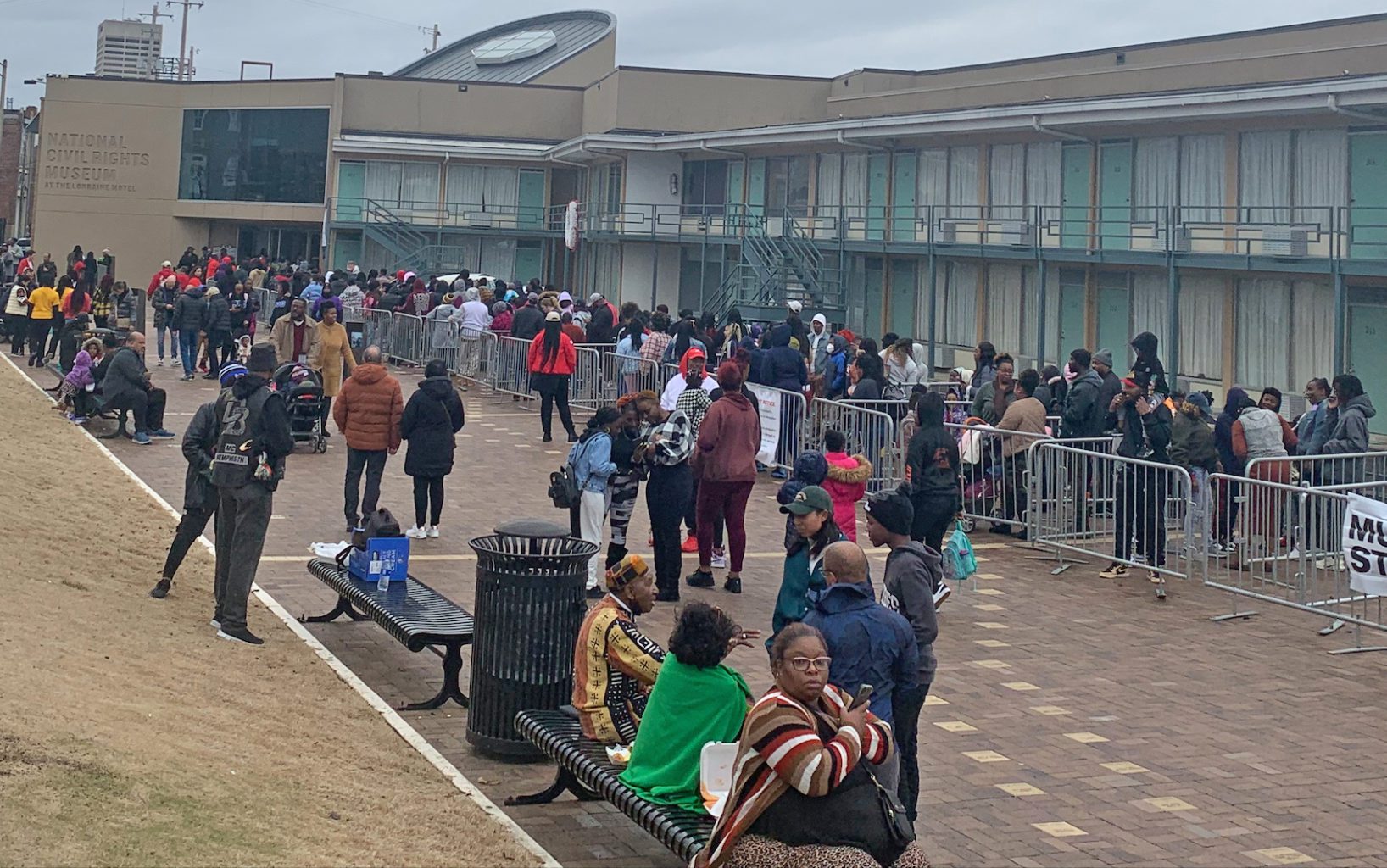The National Civil Rights Museum (NCRM) at the Lorraine Motel once again served as a prime destination point to celebrate the greatness and impact of Dr. Martin Luther King Jr. on the holiday in his honor.
Outside the museum, attached to the motel where the world-renowned civil rights leader was assassinated on April 4, 1968, there was an acknowledgment that the battle for equal rights and economic equity still is being fought.

Memphian Rebria Maxwell regularly visits the museum. While happy to be a part of events that uplift MLK’s legacy, the need for ongoing change was a certainty for her.
Asked whether things have gotten better, she responded, “What do you think?”
“I do not think that things have gotten better from when Martin Luther King Jr. made his ‘I Have A Dream’ speech. However, I do not put myself into positions that would allow discrimination to happen to me.”
Jericka Webster, the NCRM’s marketing communications coordinator, said although some things are better, more workforce opportunities are needed for African Americans.
“I do not think that we have made much progress when it comes to the elevation of African Americans in the workforce, and it’s a very concerning issue,” Webster said.
“When it comes to African Americans being able to sit next to other races and restaurants, there’s an argument that things have improved on that front. However, that’s not the total package.”
Webster discussed the wage gap that exists between African-American and white workers.
For example, the U.S. Department of Labor reports that, regarding weekly wages, African Americans earn 75.58 percent of what whites earn.
Webster acknowledged the importance of any honest work but expressed concern about the scarcity of American Americans working in senior executive positions in major companies.
African Americans represent less than 1 percentage point (0.8 percent) of Fortune 500 CEOs and only 3.2 percent of executives and senior manager-level employees are African American.
Those findings were included in a December 2019 study, “Being Black In Corporate America: An Intersectional Exploration,” conducted by the National Opinion Research Center at the University of Chicago.
Webster added, “It’s a real question to ask, ‘Are we holding these organizations accountable in terms of allowing African Americans to be on their staffs and making big decisions’?”
NCRM visitor Will Smith of Los Angeles said his job as a FedEx pilot frequently positions him in different parts of the country and provides him with a keen perspective of how different races are treated in various environments.
Regardless of race, he thinks people should be aware of Dr. King’s legacy and its impact.
“I think it is very important for people to know who Martin Luther King Jr. was as a person and that everyone should know his story and what he did in terms of equality.”
As for where things stand now, Smith said, “With some of the events that have taken place in the last few years, it’s apparent that there’s improvement still needed.”
On this MLK Day, Paul Arnett and Kim Wicks of the Black repertory Hattiloo Theatre were optimistic, yet realistic.
“I think that it is a stalemate of sorts,” said Arnett. “I appreciate that there are people in groups trying to get others into higher positions of authority, but when I look at (the) measurement, I don’t see too much that has changed.”
Wicks added, “I think that people should know the history and that a lot of the reason why things haven’t changed much centers around individuals not really wanting to know about the past, and it just repeats itself.”
And, said Arnett, everyone should remember that “Black history is American history, and we can’t try and change it.
“Our story is in the fabric of America, and it’s important that it’s told and …(that) is what makes us a part of America.”